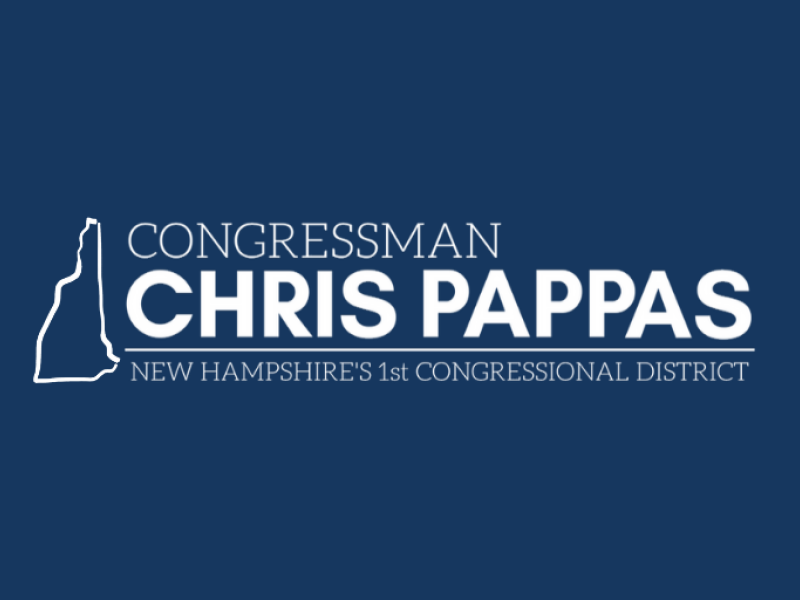House Passes Appropriations Package Containing Key Pappas Provisions to Fight Addiction Epidemic in New Hampshire as Overdose Deaths Continue to Climb

Package also includes Pappas-led efforts to support domestic manufacturing, community oriented policing, and POW/MIA families
Today, the House passed H.R. 7617, the second annual appropriations package, which funds a range of critical national priorities, including the fight against the addiction epidemic in our communities. The legislation includes several key provisions introduced by Congressman Chris Pappas (NH-01), including an amendment he passed with Rep. Ben Ray Lujan (NM-03) to increase funding for Comprehensive Opioid Recovery Centers.
"As our nation continues to grapple with the impacts of COVID-19, it is critical that Congress advances a funding package that reflects the needs of our country and our constituents, said Congressman Pappas. "From interruptions to treatment and recovery services to social isolation, Covid-19 has exacerbated the conditions that contribute to the addiction crisis in our state. I am glad my colleagues also recognized the importance of this issue by passing our amendment to increase funding for Comprehensive Opioid Recovery Centers by $8 million. We must continue to support those in need as we confront these challenging times together."
"The opioid epidemic continues to ravage families and communities throughout America, and far more help is needed to meet this challenge. Because of leaders like Congressman Pappas, this year's appropriations bills expand federal investments that address substance use disorder," House Appropriations Committee Chairwoman Nita M. Lowey said. "I look forward to continuing to work with Chris to help combat the opioid epidemic in New Hampshire and across the nation."
The package also includes $412 million for grant programs authorized under the Comprehensive Addiction and Recovery Act, which is a $34 million increase from the last fiscal year.
While progress has been made in the battle against the opioid crisis, the current pandemic has exacerbated the problem by disrupting treatment services, and increasing risk factors such as financial distress and social isolation. Compared to last year, suspected drug overdoses nationwide had increased by 42% by May. In New Hampshire, 198 confirmed or suspected overdose fatalities occurred between January and May, compared to 179 last year.
H.R. 7617 provides discretionary funding for the Departments of Defense, Justice, Commerce, Transportation, Housing and Urban Development, Energy, Labor, Education, Health and Human Services, and other national priorities for FY 2021.
Additional provisions Pappas fought to include to help fight the addiction epidemic include:
- $17 million for SUD Treatment Workforce Loan Repayment Program;
- $41.7 million for Mental Health and SUD Workforce Training Demonstration Program;
- $1.5 billion for State Opioid Response Grants;
- $1.85 billion for Substance Abuse Prevention and Treatment Block Grants; and,
- $102 million for Drug Free Community Grants.
Pappas led provisions included in the appropriations package:
- Increases funding for Comprehensive Opioid Recovery Centers (CORCs) under the SAMHSA Mental Health account by $8 million which provide a full spectrum of treatment and support for those fighting addiction;
- $10 million in grant money for local law enforcement agencies with fewer than 350 employees to pay for accreditation or re-certification by a national, state, regional, or Tribal professional law enforcement organization;
- $4 million in funding for the NIH Office of the Director in order to establish a pilot program to support research and development jointly with Israel for effective responses to COVID-19;
- $4 million in funding for the Defense Health Agency's Armed Forces Medical Examiner System's DoD DNA Operations Section to perform DNA testing for DPAA in support of its efforts to identify POW/MIAs; and,
- $1 million for Manufacturing Extension Partnership (MEP) to address the supply chain challenges caused by COVID-19 and the need for additional investment in domestic manufacturing supply lines.
